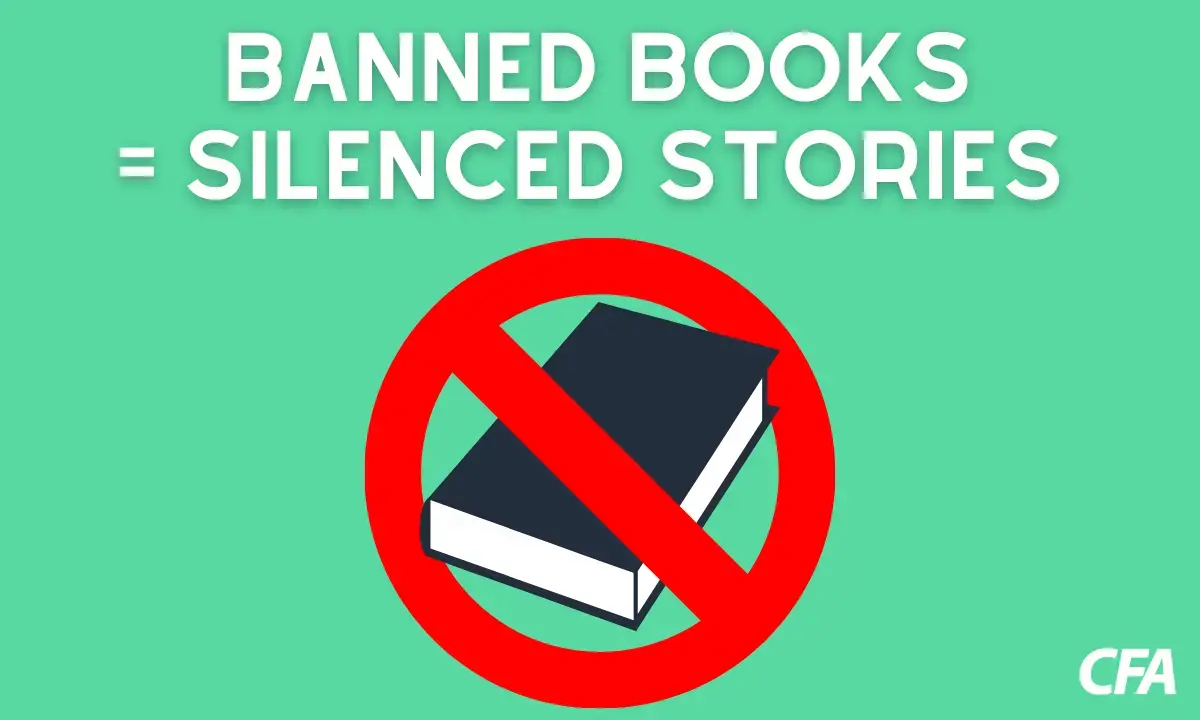CFA Librarians Ensure Intellectual Freedom of Academic Communities
A startling rise in book challenges and attempts to censor reading material has engulfed our public libraries and K-12 schools this year.
While not new, these latest efforts are politically partisan and rooted in racism, sexism, homophobia, bigotry, and their intersectionalities. Materials targeted to be removed from library shelves are often written by or about underrepresented groups.
“Libraries are not neutral,” said Carolyn Caffrey Gardner, CFA Librarian Committee Chair and Information Literacy Coordinator at CSU Dominquez Hills. “Occasionally, critics will cite the need to present ‘both sides’ of an issue or silence as a form of ‘objective neutrality,’ but libraries have always made choices as to how they serve their communities.”
Even if these so-called challenges haven’t reached the CSU (and tend to target K-12 schools), it’s important for faculty to be aware of this rising impulse of authoritarian tactics nationally to better support librarians in providing access to challenged materials.

Unlike primary education environments, academic library materials don’t typically have a formal challenge procedure that involves an outside board or another political process.
Library faculty have professional expertise in selecting — and deselecting — materials in accordance with collection development policies. It’s important to remember that faculty have academic freedom to carry out responsibilities. Many CSU libraries have children’s and young adult book collections utilized by education students in teaching practicums and other activities, which include popular challenged titles now and historically.
“These attempts to censor library materials — which include nuanced representations of minoritized or otherwise oppressed groups — aren’t just about removing materials from libraries but are a part of larger attempts at symbolic erasure of populations that make political conservatives uncomfortable,” said Maggie Clarke, CFA member and humanities librarian at CSU Dominguez Hills. “The expressed intention is to maintain existing inequities which benefit white, straight, cis people at the expense of everyone else while obfuscating the processes by which oppression is maintained.”
The American Association of University Professors (AAUP) states that, as with other faculty, academic freedom is “indispensable to librarians in their roles as teachers and researchers.”
“Critically, they are trustees of knowledge with the responsibility of ensuring the intellectual freedom of the academic community through the availability of information and ideas, no matter how controversial, so that teachers may freely teach and students may freely learn,” writes AAUP in its joint statement on faculty status of higher educational librarians.
In addition, to reaching out to CFA, if anyone experiences an informal book challenge, the American Library Association Office of Intellectual Freedom also has important support resources, which can be read here.
Join California Faculty Association
Join thousands of instructional faculty, librarians, counselors, and coaches to protect academic freedom, faculty rights, safe workplaces, higher education, student learning, and fight for racial and social justice.